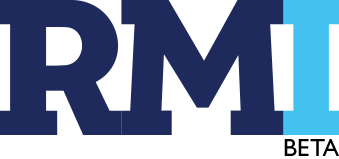
Pathology

Pathology is the branch of science primarily focused on the cause, origin and nature of disease. This medical field involves the examination of tissues, organs, body fluids and autopsies in order to diagnose the disease. Pathology plays a vital role in research, advancing medicine and developing new methods of treating viruses, infections and bacteria. Doctors and scientists working in pathology are experts in illness and disease.
RMI Pathology Function is privileged to declare to be the only facility in the province to house state of art and latest equipment. The department can perform more than 300 different tests in different fields of pathology. Doctors and scientists are working in the labs assisting all departments in identification of disease and illness.
1. Reception & Phlebotomy
Phlebotomy is when someone uses a needle to take blood from a vein, usually in your arm. Also called a blood draw or venipuncture, it's an important tool for diagnosing many medical conditions. Usually the blood is sent to a laboratory for testing.
2. Blood Bank
A blood bank is a center where blood gathered as a result of blood donation is stored and preserved for later use in blood transfusion.
3. Microbiology
Microbiology is the study of microorganisms, those being unicellular, multicellular, or acellular. Microbiology encompasses numerous sub-disciplines including virology, bacteriology, protistology, mycology, immunology and parasitology.
4. Serology
Serology is the scientific study of serum and other body fluids. In practice, the term usually refers to the diagnostic identification of antibodies in the serum.
5. Hematology
Hematology is the branch of medicine concerned with the study of the cause, prognosis, treatment, and prevention of diseases related to blood.
6. Molecular biology, PCR Lab
Polymerase chain reaction is a method widely used to rapidly make millions to billions of copies of a specific DNA sample, allowing scientists to take a very small sample of DNA and amplify it to a large enough amount to study in detail.
7. Chemical Pathology
Chemical pathology (also known as clinical biochemistry) involves the biochemical investigation of bodily fluids such as blood, urine and cerebrospinal fluid. By discovering how and where the body's chemistry has changed, diseases can be diagnosed and monitored.
8. Centre for genomic sciences
RMI has entered the modern world of high-throughput genomics by adding the Next Generation Sequencing (NGS) facility to the Center for Genome Sciences (CGS), RMI. This will bring RMI up to date with international standards of human genetic diagnostics and research as well as provide patients of genetic diseases (including cancers) an advance facility.
9. Hematology Day care
Testing and diagnosing patients. Performing bone marrow aspirations for the detection of blood disorders.
10. Infection control department
Infection prevention and control is the discipline concerned with preventing healthcare-associated infections; a practical rather than academic sub-discipline of epidemiology.
11. Histopathology
Histopathology refers to the microscopic examination of tissue in order to study the manifestations of disease
12. Mycobacteriology
This section has a state-of-the-art, Biosafety Level III Facility. We are using fully automated system: MGIT960 for TB Culture, identification and sensitivity testing in addition to manual culture technique to enhance testing proficiency and to decrease turnaround time.
- For facilitation of patients round the clock services are provided with ensuring internal quality standards by means of quality control materials. All consumables are accredited by International standards.
- Patients are served swiftly and proficiently by means computerized laboratory systems.
- Records of every patient, test results generation are accomplished through computerized mechanism to reduce human error and retain registration process in prompt and accurate manner.
We have used bidirectional interfacing to minimize human handling hence decreasing the chances of error and assuring the appropriate results.
As soon as the patient is registered at laboratory reception, a unique barcode is generated with specific details of the patient and requested analytics, barcodes are then pasted on specific tubes in which the samples of the patient are collected according to the specified guidelines. These patient specific barcodes on the tubes help to track the sample at any stage and to perform analyses of requested tests with minimal chances of test missing, sample mixing or wrong test processing
We are assuring the result accuracy with low turnaround time and reliable results by analyzing the Serum, Plasma, Urine, Cerebrospinal fluid (CSF) and other body fluids on automation by using bidirectional interfacing.
























